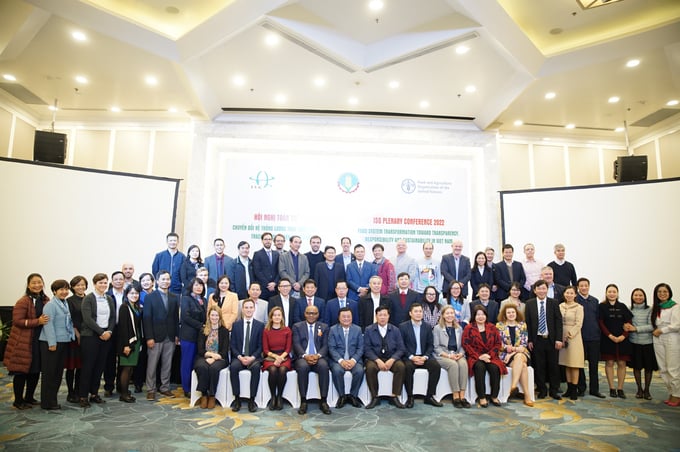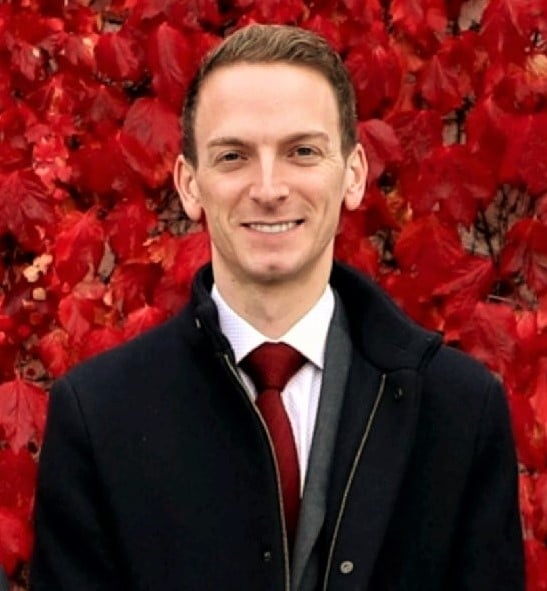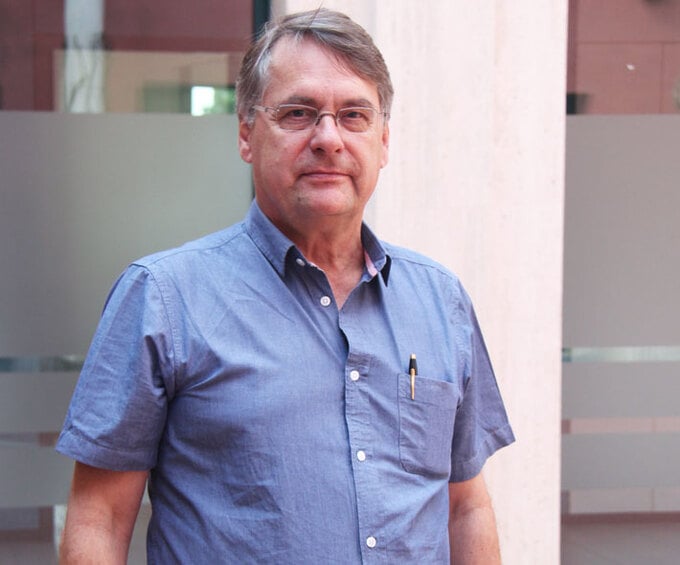May 24, 2025 | 16:24 GMT +7
May 24, 2025 | 16:24 GMT +7
Hotline: 0913.378.918
May 24, 2025 | 16:24 GMT +7
Hotline: 0913.378.918

At the 2022 International Support Program (ISG) Plenary Conference taking place in Hanoi recently, experts Domestically and internationally, experts have exchanged and shared experiences to assist Vietnam in realizing the goals in the National Action Plan to transform the food system towards transparency, responsibility and sustainability.
Changes and adjustments in the vision of Vietnam's agriculture sector are in line with the initiatives of the United Nations. The question is how can we translate that vision now into a National Action Plan. Vietnam is definitely far ahead in comparison to other countries and it is embracing the complexity and difficulties of that process.
Siobhan Kelly, Agribusiness Economist, Food Systems and Food Safety Division FAO

Despite certain differences, Ireland and Vietnam are both countries with strengths in agroproduction. I believe we still have some experiences to share with Vietnam, including the area of food system transformation.
Through the United Nations Food Systems Summit 2021, we recognized Vietnam’s rapid development. We want to direct our cooperative effort of food system transformation, we would like to share about the Sustainable Food System Ireland.
Sustainable Food System Ireland (SFSI) is the international consultancy group of a consortium of five Irish Government organizations, led by the Ministry of Agriculture, Food and the Marine.
SFSI assesses the environmental and social dynamics of the food system, analyzes the information, and then makes recommendations. Next year, through a partnership with SFSI, we will launch a multi-sectoral program of assistance to Vietnam and we intend to build on our previous engagement with stakeholders such as the Ministry of Agriculture and Rural Development (MARD), the Ministry of Planning and Investment, universities and other stakeholders. The objective of this engagement aims to support stakeholders in terms of sustainable food system transformation aspects, including actions identified in the National Action Plan.
We identify three key areas in the program. One is to build a sustainable production system for responsible, green, low-emission agriculture, researching and developing genetics improvement, farming system modeling, and soil health recovery measures. The second aspect is food safety, ensuring access to safe and nutritious food. We have knowledge to share with relevant Vietnamese authorities to stay firmly on the path to food system transformation. The third is to improve the quality of the value chain. We would like to help Vietnam foster innovations and build the innovation hub center.

CGIAR has always actively contributed to the food system transformation action plan. Next year CGIAR sets out on a mission to transfer science and advances that will accelerate the transformation of water, plants and food systems. CGIAR activities are in line with the objectives set out in Vietnam’s National Action Plan.
CGIAR has initiated nine projects and worked with international stakeholders in Vietnam. In addition, we are also developing a program on research and innovations to accelerate the transformation of the food system, which will start in 2023, and Vietnam’s contributions play an important part in this effort.

We are not only raising the issue of food security but also the issue of food safety.
The world's population has reached 8 billion and is likely to reach 9 billion by 2030. WWF has developed a new initiative in partnership with government agencies and submitted it to the 75th UN General Assembly in 2019. The initiative is called “the New Deal for Nature and People”.
As for the reason why we developed this innovative idea, WWF is a global conservation organization. We always questioned the matter of protecting nature, but almost forgot about the matter of people. With the growing economy nowadays, the question lies in how we are going to feed 9 billion people by 2030.
Protecting nature plus dealing with environmental issues is one of the conditions for us to solve the people issue. We care about people, and people will return to care about nature. The ideas came together at the 75th UN General Assembly, world leaders voted for approval, and Vietnam was one of the countries that voiced strong support for the idea.
At the national level, thanks to Minister of Agriculture and Rural Development Le Minh Hoan and the International Cooperation Department, WWF signed a 5-year MoU last year, and this year we have had a temporary Memorandum of Understanding to cooperate not only in protecting biodiversity and the environment but also in ensuring food security – an element that we need to pay close attention.
Translated by Samuel Pham

(VAN) The People's Committee of Tra Vinh province has approved an adjustment to the investment policy for the Green Hydrogen Plant project, increasing its area to approximately 52.76 hectares.
![Reducing emissions from rice fields: [2] Farmers’ commitment to the soil](https://t.ex-cdn.com/nongnghiepmoitruong.vn/608w/files/news/2025/05/05/dsc08881jpg-nongnghiep-140632.jpg)
(VAN) Clean rice cultivation model in Thuong Tan commune, Bac Tan Uyen district, is assisting local residents in achieving sustainable agriculture by substantially reducing costs, increasing productivity, and protecting the environment.

(VAN) At the conference to disseminate Resolution No. 68, AgriS introduced its digital agricultural ecosystem and reaffirmed its commitment to accompanying the Government in promoting private sector development and sustainable agriculture.

(VAN) 'Blue Ocean - Blue Foods' initiative is designed to restore marine ecosystems and establish sustainable livelihoods for local communities by cultivating a minimum of 1,000 hectares of cottonii seaweed in the first three years.
/2025/05/21/4642-3-112707_603.jpg)
(VAN) The V-SCOPE project has made direct contributions to three out of six pillars of the Comprehensive Strategic Partnership between Vietnam and Australia.

(VAN) Facing the threat of rabies spreading to the community, Gia Lai province urgently carries out measures to vaccinate dogs and cats on a large scale.

(VAN) Disease-free livestock farming not only protects livestock herds but also stabilizes production and livelihoods for many farmers in Tuyen Quang.